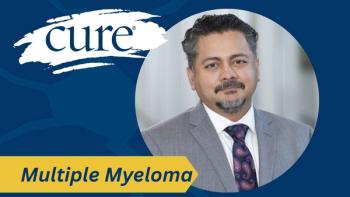
CURE Community Vlog: Winning Despite 'Being Dealt a Bad Hand' After Cancer

“Only you have the power to make your life better,” says a myeloma survivor on living for the moment after a cancer diagnosis.
Multiple myeloma or any type of cancer does not have to be a death sentence. I try my hardest to let other people know that. It’s not just cancer. It’s any adversity you’re hit with in life. You can make the best of it.
Someone once said to me, “You were dealt a bad hand.” And I’m like, “I don’t think so, but if I was, I’m winning and I’m enjoying the game.”
I try to get that message out there. I have a website, sallykalksma.com, and I try to tell people with the blogs I write and the videos (I make) that you can still enjoy life.
There is so much to do. You’re only on this Earth one time, so you better make the best of it. Cancer may not be the end of your life.
It’s like my doctor said: Sally, you’re not going to die of multiple myeloma, you’re going to live until 90 and you’re probably going to die from something crazy like taking a picture at the top of the Empire State building and falling backwards or something like that.”
I try to tell people, do not live in the past because that could cause depression. Do not worry about the future, because that can cause anxiety. Live for the moment. Be content with today.
I’m putting that all together in my book that should be out this year — “Life Gets In The Way.” Sure, you’re on a path and you think you have things going perfect in your life and you’re thrown a curve ball. Well, you don’t sit there and cry about it, you deal with it. You do the best you can. Take hold of the situation and you make it better.
Only you have the power to make your life better. That is what you have to do.
I try to tell people that and teach them that, with a little twist of humor while still being sensitive, because you have to enjoy life.
Read Sally’s last vlog titled, “




